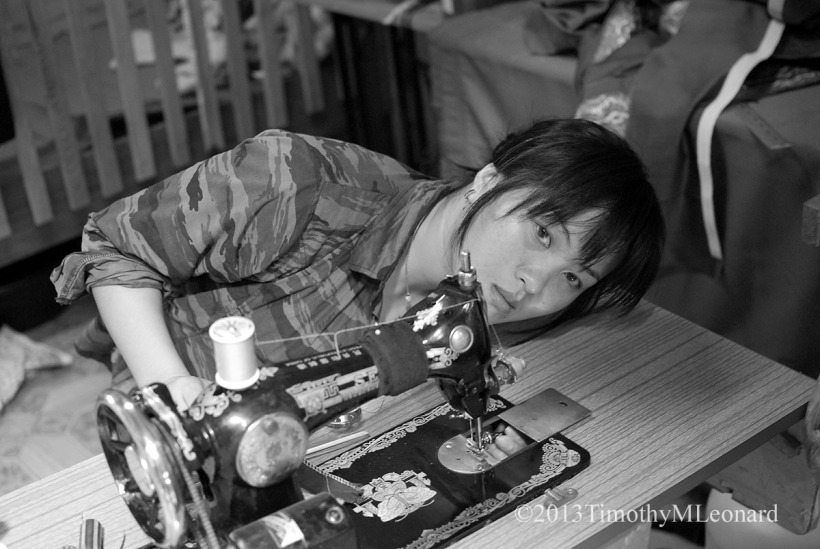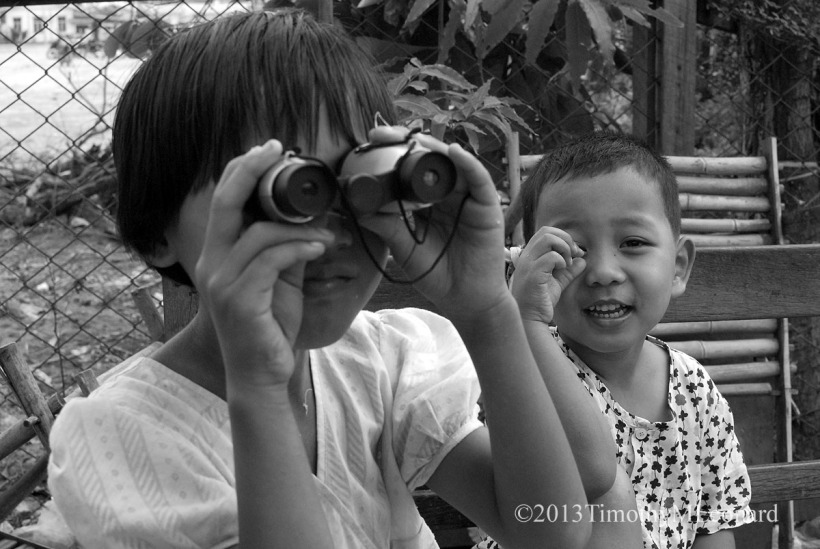June was from Stockholm, Sweden. She visited Cambodia for a month. 36-years young.
She was a tight bundle of burning anxieties. “I don't know what I’m running away from. I don’t know what I'm running toward.”
A traveler talked about Angkor temple labyrinths as an allegory of life.
One door opens and one door closes but the passages can be a bitch, whispered a Cambodian ghost.
June had evolved as a willing victim of old lies. She'd believed lying authority figures; family, husband, boss and friends. She’d believed old controlling attitudes and belief systems of others.
Her new day in Cambodia offered opportunities for awareness and growth. Like other humans, to become authentic she’d eventually face her deepest fears and shadows. Either that or keep running scared with a hellhound on her trail.
“I want to cut all my hair off,” she said in Siem Reap. It was long curling blond movie star mane quality. She went to a salon. She was nervous. She swallowed hard. A woman cut it off.
“I feel lighter now, transformed.”
June altered her outward appearance, releasing old anxieties. By cutting her hair with bright shiny silver scissors as a symbolic gesture, June realized how she felt was more essential than how her stone cold colleagues in stone cold freezing Sweden might react. It was a small significant step on her new path.
One day she experienced the influence of a remote Khmer village on her consciousness. She visited My Grandfather’s House 53 kilometers from Siem Reap. They’d converted a two story building into a school.
“What do you need?” she asked the village chief.
“We need clean drinking water.”
She bought a water purifier.
“We need electricity after 6 p.m.”
She purchased a battery so they’d have lights after dark.
Another day, returning from Angkor she stopped in a village. She met children. The next morning she invited a traveler to join her. She purchased bags of toothbrushes and toothpaste. They rolled through dry brown flat countryside and palm trees past simple stilted bamboo homes, women selling, cooking, cleaning, washing and working.
They were far away from a neon town filled with tourists doing Angkor Wat.
June talked a blue streak, unloading her honesty, hopes and dreams mixed with anxieties and fears, “I feel good doing this. I've never done anything like this before. My past life was all about anger, problems and conflicts. Now that I’m in Cambodia, what, less than a week, I’m beginning to learn about myself, seeing how my life was empty with no meaning. How it was all about pleasing others, buying useless things to make myself feel better.”
They turned onto a thin dirt track leading to a bamboo thatched home in a field. Half-naked kids played. Women and men rested in shade. June met the kids and a young mother.
“Here,” she smiled, handing them toothbrushes and toothpaste, “these are for you.” They were amazed. An 80-year old woman, a former Apsara dancer, performed quick delicate hand movements. June copied her to the delight of everyone.
“I’ll be back,” she yelled as kids waved goodbye.
“I now feel more fulfilled.”
They stopped in a market village for coffee. Young girls selling small colorful bamboo paper birds descended on them. “Buy something? Look at my things.”
June met Leaf, 13, in the 5th grade. Leaf learned English selling to foreigners at temples after school. She taught village kids English.
“I saw a leader in the girl’s eyes,” June said. “Maybe I can help her, get an English teacher for her village. Give her an opportunity to really grow.”
June had to modify her dream for the girl. “Let's be practical,” the traveler suggested, “finding a Khmer English teacher for $40 a month in this area is like finding clean drinking water.”
The next day June bought a brand new pink bike for Leaf with a bell and basket. It said, NEW STAR on the chain guard. She went to a bookstore. She bought a whiteboard, markers, 20 English learning books, picture dictionaries and storybooks. She loaded them on a tuk-tuk and returned to the village. Leaf, her family and friends were waiting. They raised pigs, dad kills them, mom sells the meat in the market, older sisters hope to find a foreign boyfriend, get married, and escape.
“Here Leaf all this is for you,” said June. “The bike will help you get to school, temples and home. The whiteboard, markers and books will help you teach English.”
Leaf smiled. “Thank you.”
Leaf pedaled through dust and brown broken leaves around the house. June spread the books out. Kids explored new images, words, ABC alphabets and colors.
“I feel real good about this,” she said returning to town. “Real good. I’ve made a small difference in a young girl’s life. I am so grateful.”
***
On another toothbrush run June traveled along a remote dusty red road. She stopped at a bamboo shop selling small bags of soap and bananas.
A young girl wore a permanent tear on her left cheek. She was not smiling. Her t-shirt had a picture of a skull and bones.
Danger! Mines!
She said to June: “Here I am. I communicate my reality to the world. Do you like my shirt? Can you read words or do you need a picture? How about a picture of a picture? I don’t know how to read so I like to look at pictures.
"My country has 14.5 million people and maybe 6-10 million land mines. Adults say there are 40,000 amputees in my country. Many more have died because we don’t have medical facilities. Mines are cheap. A mine costs $3.00 to put in the ground and $1,000.00 to take out of the ground.
“I’m really good at numbers.
“26,000 men, women and children are maimed or killed every year in the world by land mines leftover from ongoing or forgotten conflicts. Reports from the killing fields indicate there are 110 million land mines buried in 45 countries. It will cost $33 billion to remove them and take 1,100 years.
"Governments spend $200-$300 million a year to detect and remove 10,000. Cambodia, Angola, Iraq, and Afghanistan are the most heavily mined countries in the world.
“40 percent of Cambodian land is unused because of land mines. One in 236 Cambodians are amputees. A prosthetic limb costs $3,000.
“Talk to me before you leave trails to explore the forest. It's beautiful and quiet. I know all the secret places.
"I showed my picture to a Cambodian man and he didn’t like it. They call this denial. He said it gave him nightmares. He’s seen too much horror and death in one life. So it goes. My village is my world. Where do you live?”
June's humbling life changing experience woke her up in Cambodia.

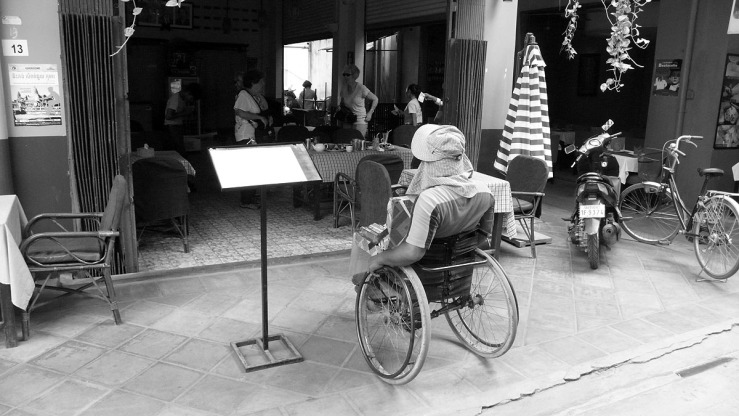
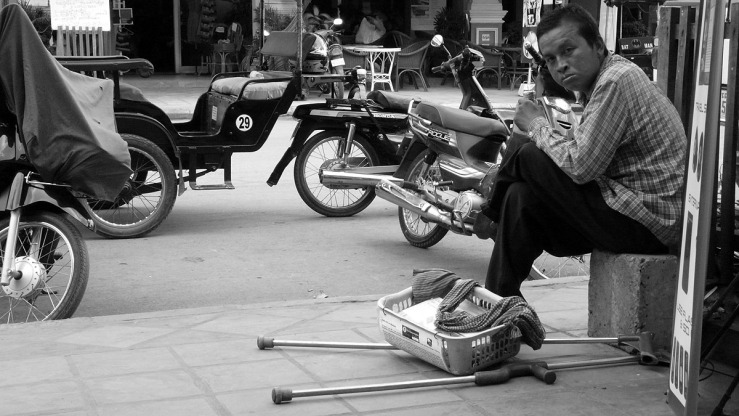
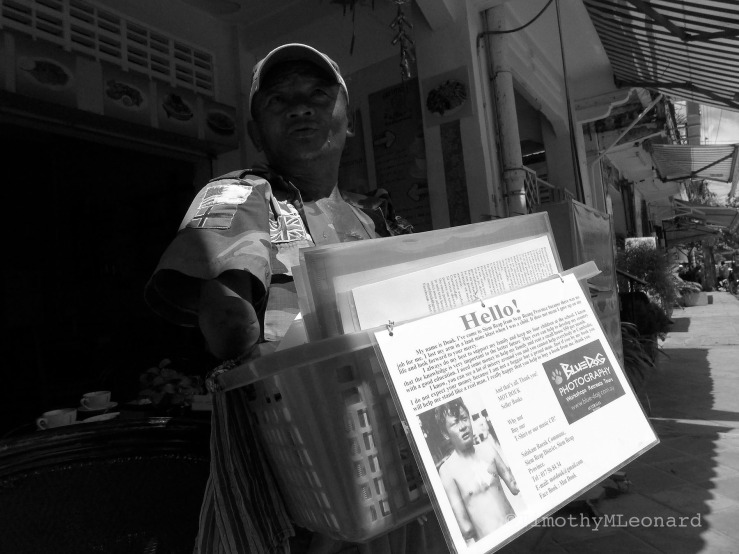






 Share Article
Share Article 